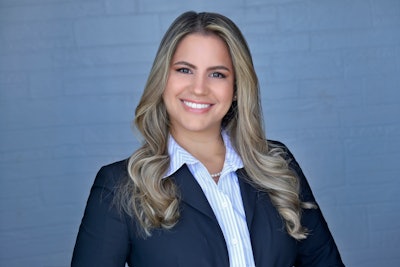
It's heating up across the country as we head into the heart of summer. While the weather forecast may be sunny, you may be heading for a storm if you don’t heed the warnings from your practice business records.
 Estela Vargas, CRDH.
Estela Vargas, CRDH.
No one likes to think that perhaps something is amiss in the practice that could cause trouble in the form of dental billing fraud. But dental insurance payers are watching the claims filed from your office.
Do you know what fraud looks like or how to spot it? Are you or your team coding a service not being delivered to the patient? Is your team providing services that they aren't licensed to perform?
Is fraud in your forecast?
 Belle DuCharme.
Belle DuCharme.
The rule of coding is to bill what you do. If insurance is part of the reimbursement, the insurance plan will decide what it pays for, which is show on the patient's explanation of benefits. Trying to manipulate the system to benefit the patients or the practice for financial gain is considered fraud.
Sometimes fraud occurs because of a lack of knowledge or the path of least resistance. But unintentional fraud is still criminal. For instance, if a patient's plan does not cover periodontal maintenance and the patient says to bill for a prophy that the plan will cover and you do so, you've committed fraud.
Fraud not only applies to dentists but to the entire dental team. Everyone can be held responsible if they are in contact with patient records that result in fraud.
Sometimes the front desk person or office manager is committing fraud in billing for services incorrectly. Even if the dentist is unaware of the fraud, the dentist is also responsible for the actions. Billing carelessly can be avoided by having another set of eyes on your insurance billing by outsourcing to a professional insurance and account billing company.
Frequently asked questions about fraudulent dental billing
1. Can I charge for an exam and bill the insurance if the dentist is not in the office?
No, you cannot bill an examination. The dentist is the only person who can perform the examination. It's a potential problem when hygiene patients are scheduled for routine prophylaxis or periodontal maintenance appointments and the dentist is away from the office. The patient wants an examination, so the hygienist performs one. It's fraudulent to then bill the insurance company for payment with the dentist listed as the provider of services on the claim form.
2. What if the patient has insurance and doesn't appoint for the seat of a crown?
Each plan policy is different in this case. Some insurers will pay the contracted or prorated amount for the chair time and the lab fee, others will pay nothing. You can always appeal if it's not in your favor.
If you billed on the prep date, you might have already been paid by the plan for the seat date. If you don’t seat the crown and have been paid by the insurance company and don’t inform them, this action is considered fraudulent. If you are billing on the seat date, you can negotiate for more favorable terms.
To bill the insurance for the crown, you will need to explain why the crown was not seated and send a narrative and documentation to justify the crown as a medical necessity. Be sure to include chart notes, the pretreatment x-ray, the final x-ray, and the diagnostic narrative (or predetermination) of medical necessity for the crown. The service date on the claim should be the preparation date and the reason it was not placed.
Also, send a copy of the lab prescription and the lab invoice for the crown. It can be helpful to provide a copy of the attempts to reach the patient, including a certified letter sent to the patient encouraging the patient to complete the treatment and outlining the risks of adverse outcomes should the crown not be seated.
The situation may be preventable when you provide every patient with a treatment estimate, informed consent, and financial options before treatment has started. Collect in full for any prosthetic during preparation to avoid cancellations on the seat date.
3. Can I code for periodontal maintenance if the patient has a difficult prophy?
The code for periodontal maintenance (D4910) is often misused. Some dentists tell the hygienist to bill out the code if the patient has a “difficult prophy” or had scaling and root planing a few years ago and has not been assessed recently. The dentist and hygienist often feel warranted in charging this code because of the extra time and work involved in the appointment.
Some teams will even charge out the periodontal maintenance code on every hygiene patient because of the higher reimbursement level. If the plan doesn’t pay, they will bill the patient. This practice is not fair or ethical and, with the evidence, is considered fraudulent.
Estela Vargas, CRDH, is the founder and CEO of Remote Sourcing, a dental insurance billing and revenue recovery service. She is a graduate of Miami Dade College's dental hygiene program. Vargas' extensive background in the clinical arena of dentistry is coupled with her experience as a practice administrator and business executive.
Belle DuCharme has been a dedicated writer, speaker, and consultant for the dental profession for decades. With a solid foundation in practice management and clinical experience, DuCharme has helped hundreds of dental clients achieve practice growth and stability. Her mission is to help other dental professionals create standards for financial and clinical success. You can reach her at [email protected].
The comments and observations expressed herein do not necessarily reflect the opinions of DrBicuspid.com, nor should they be construed as an endorsement or admonishment of any particular idea, vendor, or organization.



















